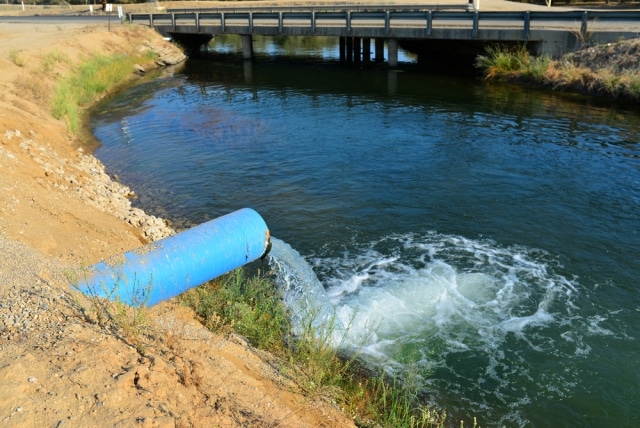California is facing such a severe drought and water crisis that Governor Jerry Brown issued the first mandatory water restrictions in state history last month. But it appears that the state’s oil and gas regulators did not get the memo about just how urgent the situation is.
The Division of Oil, Gas and Geothermal Resources (DOGGR), the oil and gas regulatory agency within the California Department of Conservation, reported last week that it had missed the April 30 deadline for making public the critical information about water usage by oil and gas production, claiming it was simply too much data to process.
Governor Brown signed into law SB 1281 last September, which requires companies to make quarterly reports to DOGGR about the source, volume and disposal of all water used during oil development processes, including extreme oil extraction techniques like fracking, acidization and steam injection. The first set of required data reporting was due at the end of April.
Understanding how much and what kind of water is used by the oil industry is essential to devising a comprehensive plan for conserving the state’s dwindling supply.
Peter Gleick, president of the Pacific Institute and one of the foremost water experts in the state, told DeSmogBlog last month that, “Without good data, we can’t have good policy. And it’s long overdue that the oil industry be transparent about water use and water quality. So I’m looking forward to more transparency.”
As DeSmog recently reported, hundreds of thousands of barrels of oil field wastewater are sold to California farmers every day, making it even more important to understand exactly what kind of water the oil industry is using, how it’s treated and what chemicals are in it.
According to the LA Times, State Senator Fran Pavley (D-Agoura Hills), who wrote the legislation requiring water use disclosure from the oil industry, was understandably frustrated when DOGGR missed the April 30 deadline. In a letter requesting an explanation from Department of Conservation Director Mark Nechodom, Pavley pointed out that the agency had received plenty of notice about the new requirements and had not raised any concerns about being able to meet that obligation in the past.
“The department’s failure to comply with the law is another example of poor management and lax regulation of the oil and gas industry that has implications for California’s economy and the public health,” Pavley wrote, according to the Times. “The public — during a serious drought — needs to know where this water comes from and where it’s going.”
Nechodom cited “unforeseeable personnel and technical challenges” as the reason for DOGGR’s failure to meet the deadline in a response to Pavley.
By calling this “another example” of DOGGR‘s lax regulation of the oil and gas industry, Pavley was referring to the ongoing controversy over California’s wastewater injection program.
Earthjustice, the Sierra Club, and the Center for Biological Diversity filed a lawsuit last week seeking the immediate closure of more than 2,500 oil industry wastewater injection wells that DOGGR officials themselves admit were improperly permitted to operate in groundwater aquifers that should have been protected under the federal Safe Drinking Water Act as well as state laws.
The environmental groups’ suit challenges DOGGR’s emergency regulations that allow most of the offending injection wells to continue operating until 2017 while their owners seek the necessary exemptions from the Safe Drinking Water Act.
In its emergency regulations, the environmentalists say, DOGGR characterized the true emergency as any inconvenience to the oil industry if it were forced to stop disposing of wastewater in protected aquifers, not the water shortage itself or threats to public health.
Image Credit: Richard Thornton / Shutterstock.com
Subscribe to our newsletter
Stay up to date with DeSmog news and alerts






